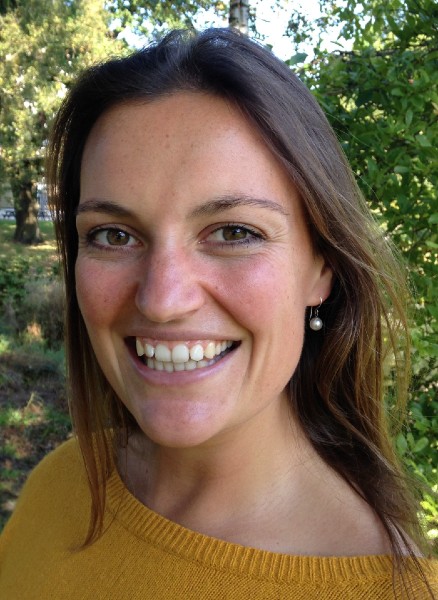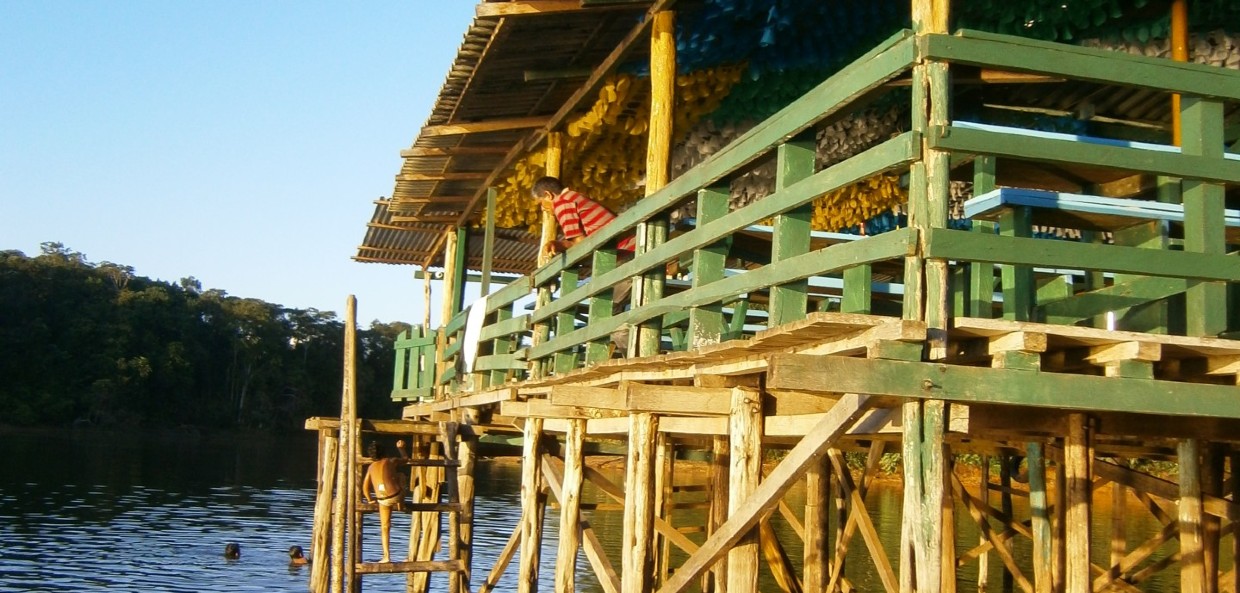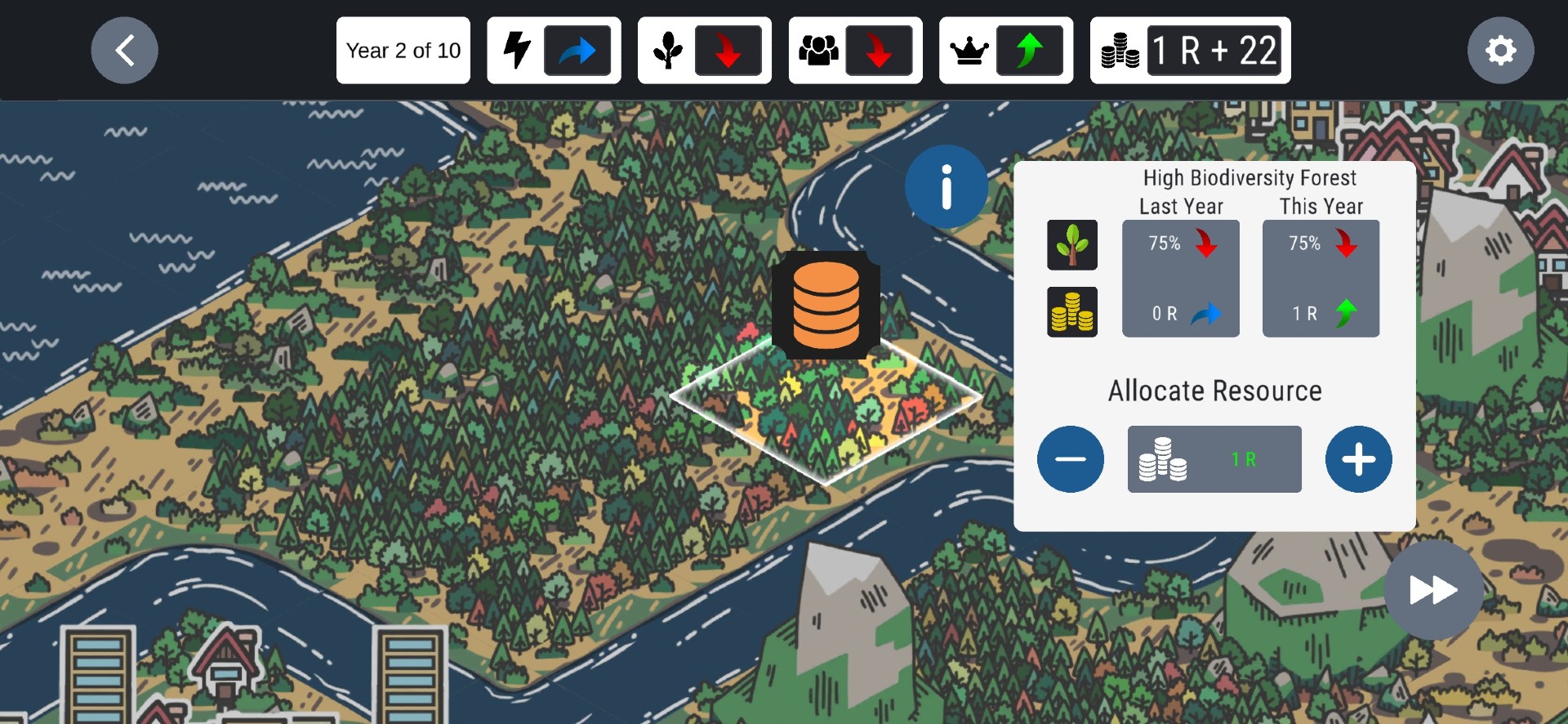As world climate summit COP26 begins today, researchers at the University of Stirling have created a video game that puts players in the position of the world leaders gathering there.
Stirling biodiversity researchers joined forces with a Dundee gaming company to build free video game ‘Power Up!’, where gamers decide how to allocate resources and then experience the impact of their decisions on people and planet.
Players choose how and where to build a hydroelectric dam, representing the United Nations’ Sustainable Development Goal (SDG) of ‘clean, affordable energy’. As the game progresses, players make decisions on how to manage energy generation, biodiversity and community prosperity, and see the effect of their choices across their game landscape – how they impact on SDGs like ‘zero hunger’ and ‘life on land’.
The game – unusual in the growing field of gamified research as it is open access and directly links game-players with large-scale research-led data collection – is now available as a free download on app stores.
Dr Isabel Jones, of the division of Biological and Environmental Sciences, led the project as part of a UK Research and Innovation Future Leaders Fellowship. She said: “This is a way for people to visualise some of the trade-offs between different UN Sustainable Development Goals, and to understand how difficult these trade-off decisions are at a local, and a global, level.
“A hydropower dam generates electricity, but it might flood homes and ecosystems that are important for people and biodiversity. We need to find ways to make decisions about SDGs that are not harmful for people and the planet.

Research Fellow in Biological and Environmental Sciences, UKRI Future Leaders Fellow
We want decision-makers to play too, whether they are in the local river department, county level, government level, or part of inter-governmental agreements. Renewable energy generation is a global goal, but the downstream effects of hydropower dams on people and biodiversity can be significant. We want to demonstrate this in the game.
“There is conflict about how the world should develop and there are groups being severely disadvantaged by some of the decisions being made. Our aim is to help resolve conflict between stakeholders, and find ways to avoid one or two SDGs being pursued at the expense of others, as this can lead to injustices and irreparable damage to ecosystems.”
Dr Jones’ team will collect data on how players make decisions about trade-offs between SDGs and which they prioritise. This data will be analysed and made available to policymakers and other research teams.
“From the data, we can infer what people value and how they approach challenging sustainable development trade-offs,” Dr Jones continued. “Say if 5,000 people play the game and 80% maximise equity in their sustainable development decision-making, then we can demonstrate to policymakers that people really value decisions being fair. They don’t want to see scenarios that lead to injustice. So, if a dam has to be built because hydropower is part of the energy mix, then how can we make it better? How can impacts be mitigated? Is it the location? Or a different form of renewable energy that we need?”

Local business on the reservoir created by the Balbina megadam in the Amazon Basin, which flooded homes and forest. CREDIT Isabel Jones
The team would like the game to be played by as many people as possible – both public and policymakers – and it will be available in different languages so it can be played worldwide.
Dr Jones added: “For the public, I think there is such a drive to be involved, to contribute to solving our global challenges somehow. This way, anyone can contribute to an important global data set that will go in front of decision-makers. You can play for 10 minutes and be part of something bigger.”
Mark Moody, lead designer at Hyper Luminal Games in Dundee, said the company was proud to have been involved. He said: “It's been really exciting working on such an innovative project, providing a product for the ground-breaking work that the University of Stirling team is doing on sustainability. It's great to know that this game will have such a meaningful contribution to our understanding of how our choices affect our futures.”
The researchers also plan to play the game in workshops with communities in places like the Amazon basin, where dams are being built. Dr Jones said: “We will work with people that have been directly affected by hydropower development, because our core aim is to mobilise the values, priorities and knowledge of people with lived experience. We want to help feed this knowledge and experience upwards, to make sure everyone has a seat at the decision-making table.”
Gamified research has been practised at the University of Stirling for some time, starting with Professor Nils Bunnefeld’s European Research Council project ConFooBio, exploring the trade-offs involved in feeding the world sustainably.

